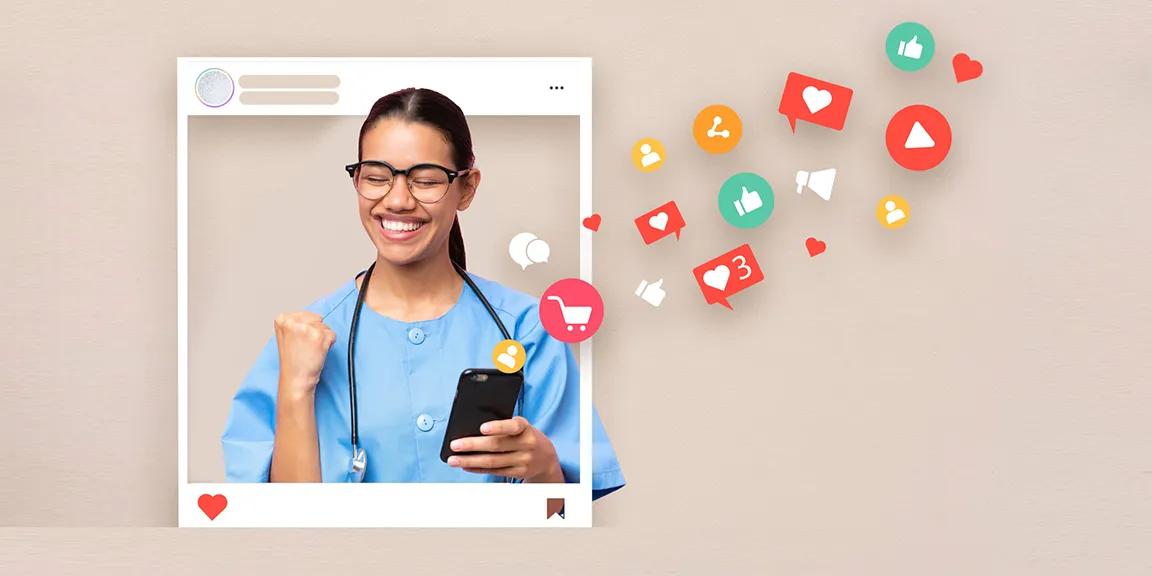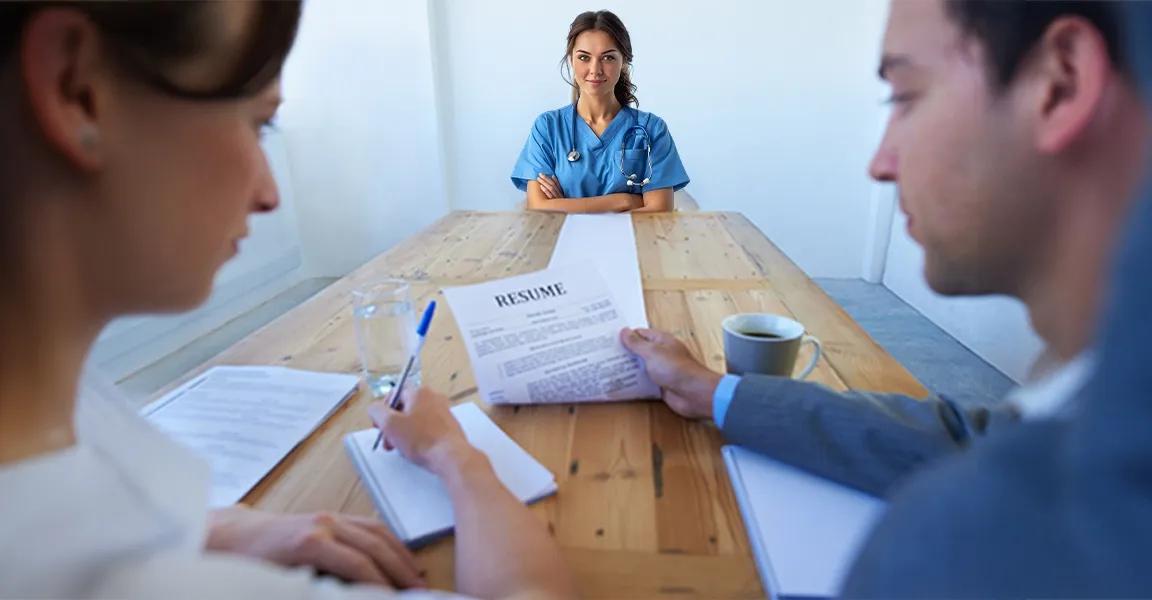
With over 302 million social media users, the USA has the third largest social media audience in the world. And as a healthcare professional, you can only imagine the endless potential this can hold. You could work this in your favor in a multitude of ways! Think professional connections, educational content, collaborating with other healthcare workers, and by and large, contributing to the community as a whole.
But, for a healthcare professional, social media can come with its own set of challenges. You’ve got to be careful about how you use social media and what kind of information you’re sharing through your posts. Since many would consider you a competent authority on healthcare topics, whatever you choose to share online may be scrutinized along those lines.
Using social media as a tool for positive influence
By using social media in a responsible and professional manner, nurses can wield its potential to make a positive impact. They can contribute to the community by sharing valuable information, encouraging healthcare discussions, and inspiring others within the community. The best use social media that can benefit nurses include:
Education
The integration of social media into education has been revolutionary, to say the least. It has changed how we receive and engage with information. Through blogs, posts on X (previously Twitter), Facebook posts, and YouTube videos, the potential for collaboration and discussion has never been greater.
And this is indeed a boon for the healthcare community. From discussing popular healthcare trends to celebrating medical advancements to even raising awareness about preventive measures against fast spreading and contagious illnesses, the extensive reach of social media can be an effective tool in furthering ideas and contributing to the existing knowledge pool within the healthcare community.
Many hospitals and organizations like the American Nurses Association (ANA) have caught on to this and make efforts to maintain dedicated blog pages and social media handles to share important information.
Networking
The most obvious use of social media is networking. In fact, that’s one of the biggest reasons why most people sign up on social media to begin with! Finding new people and content to engage with can help you grow both personally and professionally. Social media can be an excellent tool to find new colleagues and mentors. Communities like MyCareers serve as an invaluable platform to form professional networks and follow nursing-specific channels to get to know about current job trends and requirements.
Maintaining professional boundaries on social media
Considering how nursing is considered one of the most trusted professions, the influence nurses can have over people is noteworthy. That’s why if a respected nurse happens to share inaccurate information, it can be misleading and even put people at risk. As misinformation spreads easily on social media, it can end up doing significant damage. And as a healthcare professional, this puts a moral obligation on you to be mindful of the content you share and engage with on social media.
Here are some tips on how you can use social media more responsibly as a nurse:
Create separate profiles
For the sake of your privacy, it is wise to maintain separate profiles for personal and professional use. Use the personal account for strictly interacting with friends and family while the professional one can be used to reach out to a broader audience. Make sure you know your way around the privacy settings of your profiles to better control who can see the content you share.
Be mindful
It is easy for actions to get misinterpreted, especially on social media where people only form an idea of you through what you choose to share. That’s why you must adhere to strict social media guidelines when posting publicly. Maintain clear boundaries on what kind of information you share and what you interact with. Consider making a checklist of criteria your posts must meet, keeping ethics and professional standards in mind. You can share information that encompasses personal aspects occasionally, but make sure you maintain a professional front even while doing so.
Educate yourself on institutional policies
Familiarize yourself with the social media usage guidelines that organizations like the American Nurses Association (ANA), the National Council of State Boards of Nursing (NCSBN), and the National Student Nurses’ Association (NSNA) have developed. For example, ANA suggests nurses consider the impact of their words and posts and advises them to be aware of the audience who can view and engage with their content, be familiar with the social media policies of their organization and maintain professional behavior, and not engage with disrespectful content.
Maintain patient confidentiality
It is also very important to consider issues like patient comfort and confidentiality. For instance, if you’re not mindful, a seemingly well-intentioned post could actually land you in hot water with a Health Insurance Portability and Accountability Act (HIPAA) violation, and that might cost you your license.
Under HIPAA, “individually identifiable information” includes any kind of information that can be “reasonably used” to identify the patient. So, you might share a tidbit about a patient anonymously to make your audience aware of something as a gesture of goodwill, but it can still invoke a HIPAA violation that comes with its set of consequences and penalties. As a rule of thumb, refrain from revealing any personal information about the patient, and in scenarios where you feel inclined to share such information, make sure you have the informed consent of the patient.
Limit interaction with patients
While social media is a tool for connecting with people, it is generally encouraged to limit interactions with current and former patients to secure private channels only. Accepting friend requests or replying to DMs can endanger patient confidentiality while blurring the lines of professional behavior.
Instead, you can encourage your patients to reach out through official channels like the healthcare facility’s facilitated means of communication. That way, you can answer any medical inquiries while having a professional record of it.
Final thoughts
For nurses, social media encompasses both opportunity and challenges. By leveraging the potential social media holds, nurses can actively advocate for health and wellness. But while doing so, they must maintain professional standards to ensure that their integrity isn’t compromised. Setting clear delineations can help them to not only safeguard the ethical principles of healthcare, but also maximize their impact on the community.



